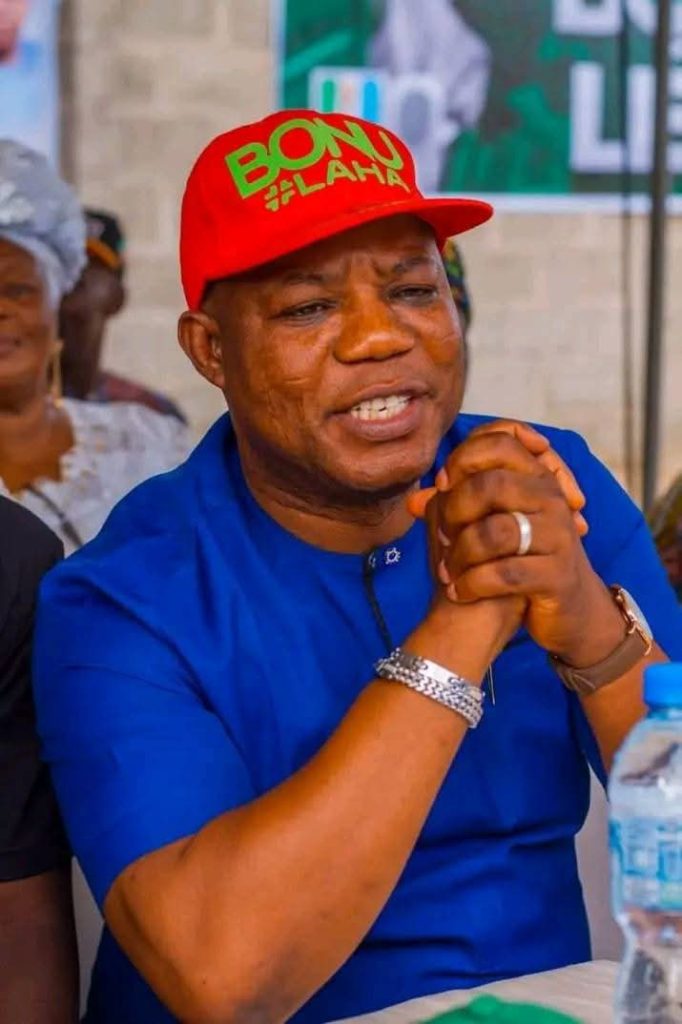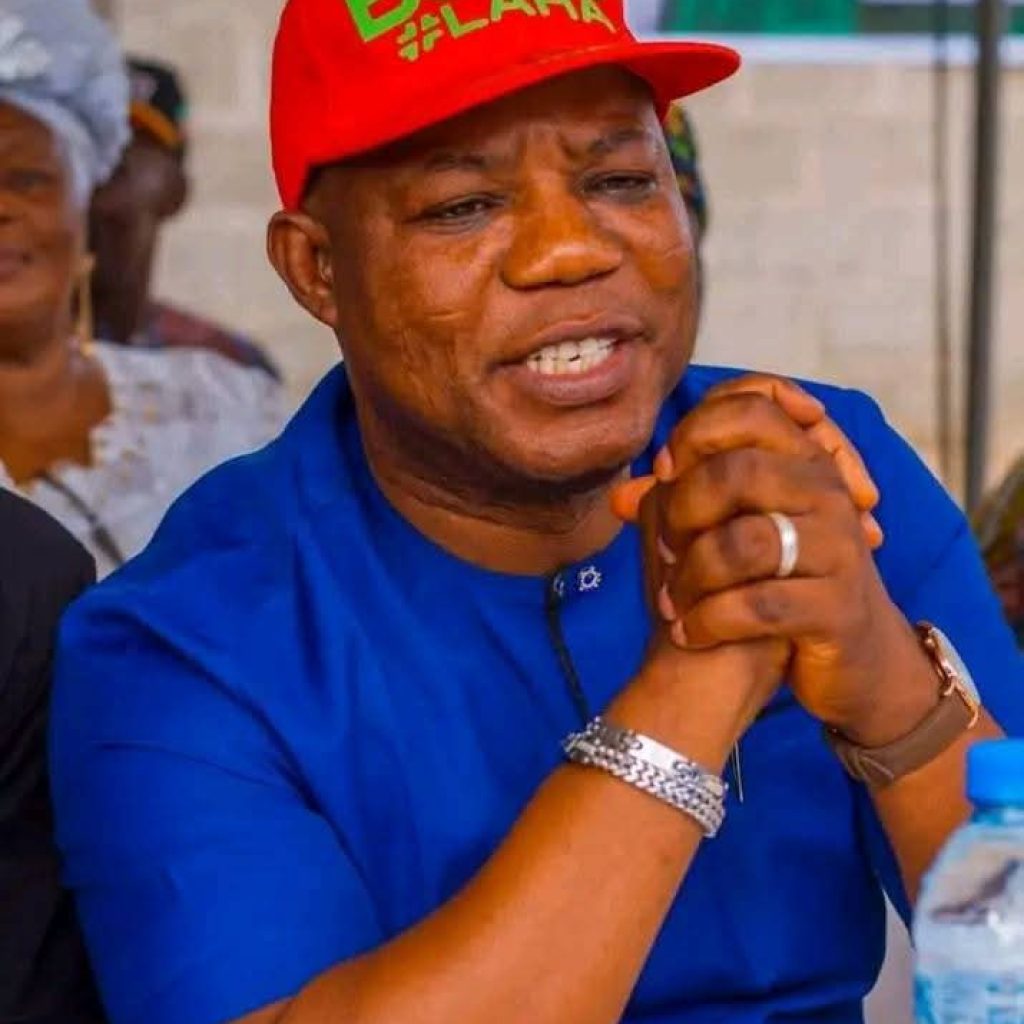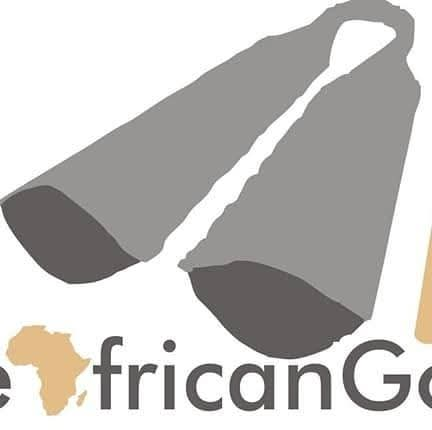
By Frank Meke
Solomon Bonu speaks about tourism the way some people talk about an old friend who has lost their spark—fondly, but with unmistakable urgency and sadness. As Chairman of the Lagos State House of Assembly Committee on Tourism and Culture, and a former insider at the ministry he now supervises, he carries an unusual blend of frustration and determination. He knows exactly how long the Lagos Tourism Master Plan has gathered dust, and he is no longer willing to indulge the silence around it. He wants an introspection and interrogation, not a probe of political shenanigans.
At a breakfast session with the Association of Nigerian Tourism Reporters and Writers, Bonu’s tone stood out. He did not arrive with the typical political gloss. Instead, he sounded like a man trying to restart an engine he once helped assemble. The reporters pushed him: Why hasn’t the master plan guided the sector’s evolution? Why does Lagos lack a flagship annual tourism product? Why do budgets rarely mature into tangible infrastructure? Why do cultural events spring up without alignment to a bigger vision? Why the optics, the showmanship without verifiable gains?
Bonu didn’t sidestep anything. “The ministry has not done what it ought to do,” he admitted—an unusually blunt assessment from a man who once occupied the inner rooms of that same institution. He won’t move an inch to hit the nail on head but was mistaken mistakenably troubled.

His frankness comes from experience. “I was there when the master plan was launched,” he said, recalling his tenure as Special Adviser on Tourism. He helped put Lagos on national tourism Calendar through Nafest with Runsewe as boss of the federal culture agency.
Solomon, rather than trade accusations, he shared what he has already initiated: a technical implementation committee made up of former permanent secretaries and directors—people who understand not only the industry but its bureaucratic wiring. The state’s top-level approval is the final hurdle. Once cleared, he says implementation will finally move from rhetoric to reality, drawing in the mix bag of tourism enablers like transportation, agro-tourism, medical tourism, maritime tourism and other sectors needed to build a cohesive tourism economy for Lagos.
But with budget season underway, scrutiny is expected to heavier than ever. Stakeholders questioned whether tourism funds are properly managed and whether legislative oversight has real teeth. Bonu welcomed the pressure. He revealed that the Ministry of Tourism is currently before the Public Accounts Committee alongside the Auditor-General’s findings. His committee has been physically visiting theatres, monuments, and film city sites to verify claims. He cited cases where shoddy work was rejected outright and contractors were ordered to redo projects or return funds.
To him, oversight isn’t complete without citizens: “A budget is a public document. If ministries don’t answer your questions, petition the House,” he urged.
His passion sharpened when Badagry came up—specifically the long-neglected Point of No Return. The site’s decline has been a sore point for years. Bonu confirmed that the governor has visited, approved funding, and that work is set to begin. Previous consultants were dismissed for poor performance. For Bonu, this isn’t just tourism—it is heritage, memory, and the responsibility owed to his people. He gave his governor and the speaker top credits for Badagry Tourism rebound!
Still, one question lingered: Why does Lagos—the country’s cultural nerve centre—still lack a global-calibre, recurring tourism festival? Bonu believes that gap can be closed. He highlighted his motion establishing Yoruba Heritage Month, an annual celebration meant to rival NAFEST and position Lagos as the heart of Yoruba culture. The Assembly passed it. The governor approved it. Yet execution has stalled. He plans to demand answers when the commissioner appears before his committee. His disappointment was clear: the Lagos Countdown, once a pride of the state, has quietly faded and dead. He wants Lagos to reclaim that vibrancy, not on glossy Lane though!
Throughout the session, Bonu wove in pieces of his own story—from lecturing at LASU to becoming Special Adviser, to representing Badagry in the Assembly. He spoke of reconnecting more than ninety communities to electricity and of his insistence on constant engagement with the grassroots. For him, public service is measured not in speeches but in what gets done. His convictions about love for the people of Badagry is unquestionable!

What emerged on this Solomonic conversation is not the position of the entire Lagos House of Assembly but the profile of a determined lawmaker confronting the inertia of a slow-moving system. Bonu is attempting to pull a master plan back into motion, revive a deeply symbolic heritage sites, enforce accountability on a ministry he once helped steer, and push Lagos toward a cultural identity worthy of its global status.
His closing message to the press was both a challenge and an invitation: keep interrogating government, but stay involved in shaping solutions. “Tourism is everybody’s business,” he said, imagining a Lagos that doesn’t just talk tourism, but lives it.

For now, the momentum to reignite that vision appears to rest heavily—perhaps decisively—in Solomon Bonu’s hands. Lagos tourism must pass through Solomonic tourism convictions, not opics as currently adjudged by stakeholders!
